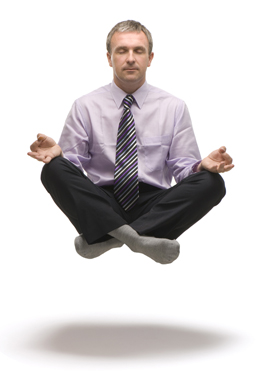home | north bay bohemian index | news | north bay | feature story

ASANAS FOR ATTORNEYS: At question: Is yoga a trade, like dental assisting?
Law of Yoga
Is teaching yoga a vocation or an avocation?
By Tori Masucci
Instructing yoga can seem as easy as slipping on a pair of hempen pants and directing others with confident mastery in downward dog. Or it was, until the government became involved.
In January, government regulators in over a dozen states began sifting through an online national registry of yoga training schools created by the nonprofit Yoga Alliance, looking at the industry as a trade group that should be regulated like the vocations of massage, truck driving, dental assisting and others.
In April, uproar on the East Coast continued as the New York State Education Department warned 80 schools that they would face a $50,000 fine if their teacher-training programs were not directly suspended.
On July 4, passionate New York–based yoga educator Leslie Kaminoff launched his own form of Independence Day for yoga when he founded the Independent Yoga Educators of America. To back himself, Kaminoff wrote "A Declaration of Independence for Yoga Educators," which lays claim to protecting the rights of the nation's yoga teachers to independence from any authority that chooses to impose its regulations upon "the yoga community."
But why the push for regulation in the first place?
The culture of yoga has changed in the past decade. No longer is it practiced only by the earth-loving offspring of the hippie movement. Yoga is a full-fledged pop-culture sensation, joining an outstretched arm to the green movement and creating a $6 billion industry that has yuppies, toddlers and retirees alike among the estimated 16 million people in the United States who practice yoga.
The 200 hours a student needs to become a certified yoga teacher is standard throughout the nation, but the lines between regulating different types of yoga instruction are hazy.
Jean Sutton, founder of BodyWorks Yoga in Petaluma, explains that many yoga studios and health clubs are now employing "gym yoga" in their classes, which can be taught by instructors who have not necessarily had formal yoga training.
"This style of yoga is approached as strictly exercise, which isn't what the yoga system is about, and many injuries have occurred," Sutton says. "The need for regulation may have stemmed from this."
Soon after the New York debacle, California put mandatory licensing for yoga training schools into question and began scrutinizing the curriculum and refunding policies that these schools use, in an effort to ensure they are legit. The state does not currently regulate or license proprietary vocational schools at all.
As a certified yoga instructor, Sutton understands the concern.
"I was pleased to hear that certain states were looking into using guidelines," she says. "They've done a lot of work trying to get standards set, and I think they've done a good job of trying to accommodate many different styles and philosophies. I feel like many schools have already set these policies for themselves, though."
Like many of her counterparts, Sutton remains a yoga purist. "By all means, being a yoga instructor is a lifelong learning experience," she says. "It's an interesting dilemma for the whole yoga industry. The rebellious side of me feels that just because yoga has taken a big boom, the government wants to regulate it. But how do you regulate this 5,000-year-old practice?"
As states continue to crack down on yoga schools, it is likely they may begin to weed out small programs and studios who cannot live up to teaching standards, or who simply cannot afford to.
"I'm registered through the Yoga Alliance for the particular interactive yoga therapy program that I run for teacher training," Sutton says. "I'm really pleased with what we offer, and it does provide a really thorough 10-month training. In my case, it would probably work out OK and my studio wouldn't be affected."
For now, in light of hovering government policies, wannabe yoga instructors will need more than taut muscles and adept flexibility to earn their certifications and gain credibility. But state bureaucrats had better believe that yoga enthusiasts won't go into a corpse pose over this one.
Send a letter to the editor about this story.
|
|
|
|
|
|